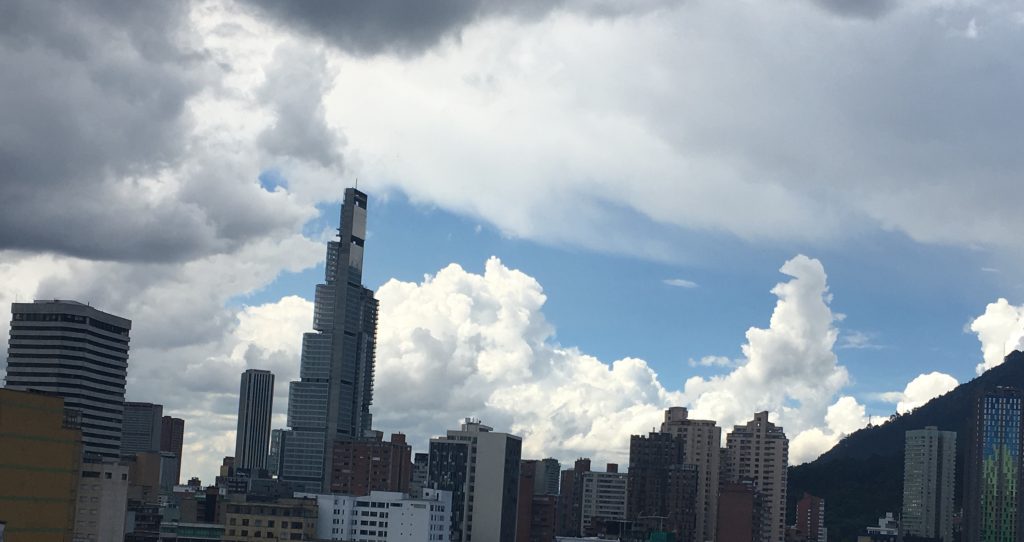
For the first time in my life I fled from the Police. Running at 7am in my local park all by myself and with a mask over my face, a motorcycle with two policemen approaching on the narrow trail. I saw them early enough and was able to sprint away from the path and hide until they were out of sight. Exercising outdoors is again forbidden, and violation costs a hefty fine (equivalent to $300). My neighbourhood Chapinero was forced into strict lockdown again for two weeks on August 16th. All shops and businesses had to close again (except those which sell food or medicine) and citizens are only allowed outside for emergencies or to buy these products. Colombians have been in lockdown since March 20th and compete with other Latin American countries for the longest lockdown in the world award.
When Covid threatened to arrive in March 2020, the President made a public statement that a country like Colombia with a more fragile economic and social structure compared to European countries could not lock down completely and that the government would pursue intelligent measures of tracking and isolation. Two days after this, the Mayor of Bogotá unilaterally announced a simulation of quarantine over a long weekend. This measure was the detonator for the country to lock down. Strictly for two-and-a-half months, and then with different degrees of flexibility, followed by a return to strict. Cases, however, only began to be identified in May when we had already been locked down for two months. The political landscape has since been characterised by uncoordinated competition for the strictest and most absurd measures (like not letting people out to get some exercise, having them wear masks when they are driving alone in their own cars, or not selling alcohol for weeks) and constant frightening of the people by the media and statements from public institutions.
Everybody in the country is seriously affected by the measures. Most business owners and their employees are especially hard hit. According to the national statistical office DANE, the country’s GDP shrunk in the second trimester of 2020 by 15.7% (same period 2019 +3.1%). Unemployment is up to 19.8% in June 2020 (from 9.4% in June 2019). The only positive impact has been the incredibly fast pace of digital modernisation of public and private services.
Children have had to stay at home since March also. They greatly miss going to school, to the playground and meeting their friends. While kids from the middle classes have virtual schooling, many of the poorer kids and their teachers do not have sufficient IT equipment, connectivity and training for meaningful virtual classes. Schools are unlikely to open again before 2021. What will the impact be for this generation of children in vulnerable conditions not having had quality education for probably a year?
The death toll ascribed to Covid has been 331 per million inhabitants. However, according to a news article in RCN, citing the National Civil Register in the first seven months of 2020, there have been 14% fewer deaths in Colombia than in the same period in 2019 (116,763 in January – July 2020 vs. 135,806 in the same period 2019). And it cannot only be due to a possibly reduced number of traffic deaths (which made up about 2.7% in 2019) or reduction of violent deaths (5.2% in 2019), as some claim.
So, altogether I feel that we have a very gloomy picture and outlook for the country which has been my home for about 20 years now. I hope Colombians will surprise me again – as they have done often in the past – and find a way of reactivating their country faster and better than I currently fear.











Donate
We depend on your donations to keep this site going. Please give what you can.
Donate TodayComment on this Article
You’ll need to set up an account to comment if you don’t already have one. We ask for a minimum donation of £5 if you'd like to make a comment or post in our Forums.
Sign UpLatest News
Next PostLetter From a Liberal Sceptic